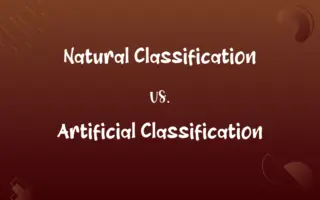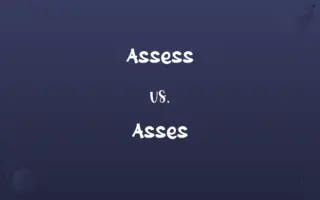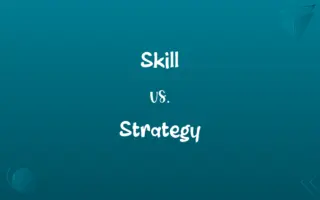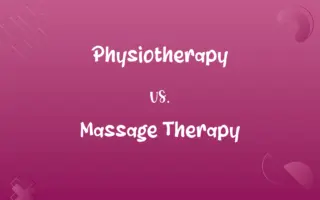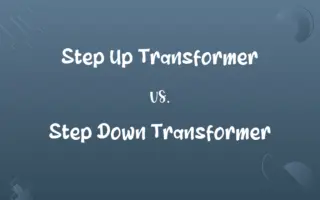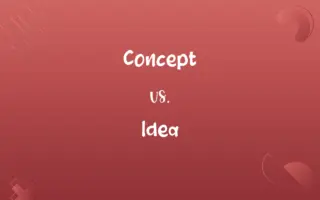Human Centered Design vs. User Centered Design: Know the Difference

By Hifza Nasir & Shumaila Saeed || Published on July 21, 2024
Human-Centered Design (HCD) focuses on holistic human needs in solution development, while User-Centered Design (UCD) emphasizes the specific needs of users in product design.
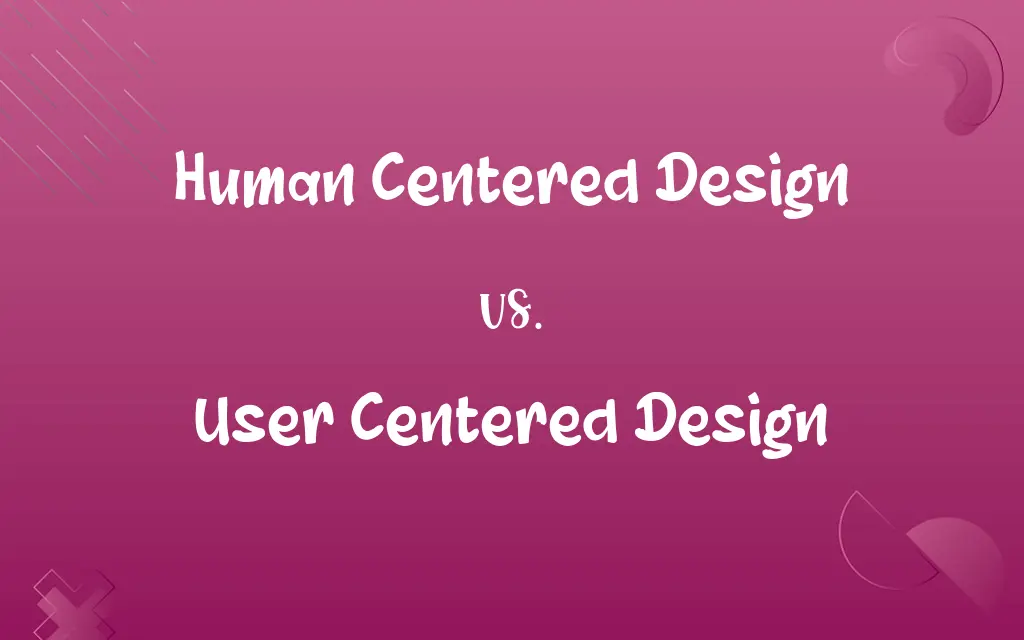
Key Differences
Human-Centered Design (HCD) is an approach that integrates the human perspective in all steps of the problem-solving process, emphasizing empathy and a broad consideration of human needs and behaviors. It involves understanding the context of a problem, generating ideas, and iterating solutions with a focus on making systems usable and useful to people. User-Centered Design (UCD), a subset of HCD, specifically targets the users of products or services, centering the design process around their needs, limitations, and preferences to enhance usability and satisfaction.
Shumaila Saeed
Jul 21, 2024
HCD encompasses a wider spectrum of considerations, including cultural, social, and environmental factors, aiming to create solutions that improve the overall human experience. UCD, by contrast, is more narrowly focused on the interaction between users and products, prioritizing functionality, accessibility, and the user interface to ensure the product meets the intended user requirements effectively.
Hifza Nasir
Jul 21, 2024
Both HCD and UCD involve iterative processes that include research, design, prototyping, and testing, but HCD may apply these steps to broader challenges beyond product design, such as system-wide or service-oriented solutions. UCD typically involves more specific methodologies like usability testing and user interface design, ensuring that the product is tailored to the user's tasks and goals.
Hifza Nasir
Jul 21, 2024
HCD might address complex societal issues or system-level challenges, UCD is often applied to tangible products or digital interfaces, aiming to enhance the direct interaction between the user and the product. The choice between HCD and UCD depends on the scope of the project and the intended impact, with HCD being suitable for more comprehensive, human-centric challenges and UCD for user-specific product optimization.
Shumaila Saeed
Jul 21, 2024
The emphasis in HCD on holistic well-being and inclusive design leads to solutions that account for a wide range of human experiences and capabilities. In contrast, UCD's focus on the end-user's interaction with products ensures that designs are intuitive, efficient, and tailored to user needs, potentially leading to higher user satisfaction and engagement.
Shumaila Saeed
Jul 21, 2024
ADVERTISEMENT
Comparison Chart
Focus
Broad human needs, experiences, and contexts
Specific needs and behaviors of product users
Shumaila Saeed
Jul 21, 2024
Scope
Wide-ranging, including systems, services, and products
Primarily products and digital interfaces
Shumaila Saeed
Jul 21, 2024
Objective
Enhance overall human experience and well-being
Improve usability and satisfaction with a product
Hifza Nasir
Jul 21, 2024
Methodologies
Ethnography, participatory design, systems thinking
Usability testing, user interface design, user research
Hifza Nasir
Jul 21, 2024
Application
Societal challenges, system-wide solutions
Product development, digital interfaces
Shumaila Saeed
Jul 21, 2024
ADVERTISEMENT
Human Centered Design and User Centered Design Definitions
Human Centered Design
A design framework focused on holistic human needs.
An HCD approach was used to redesign the city's public transportation system for better accessibility.
Shumaila Saeed
Feb 26, 2024
User Centered Design
Prioritizes the end-user's perspective in product development.
A UCD approach was used to enhance the ergonomics of the new office chair.
Shumaila Saeed
Feb 26, 2024
Human Centered Design
Aims for sustainable and culturally relevant solutions.
The HCD project focused on sustainable housing that respects local traditions.
Shumaila Saeed
Feb 26, 2024
User Centered Design
Involves iterative testing and feedback from actual users.
UCD principles guided the app's development, focusing on ease of use and navigation.
Hifza Nasir
Feb 26, 2024
Human Centered Design
Emphasizes empathy and understanding in problem-solving.
HCD was applied to create educational programs that adapt to various learning styles.
Hifza Nasir
Feb 26, 2024
ADVERTISEMENT
User Centered Design
Aims to make products accessible and efficient for users.
The website redesign followed UCD to ensure it was accessible to all users, including those with disabilities.
Hifza Nasir
Feb 26, 2024
Human Centered Design
Involves users in the design process for inclusive solutions.
The community center was developed using HCD principles to cater to diverse community needs.
Hifza Nasir
Feb 26, 2024
User Centered Design
Focuses on the direct interaction between the user and the product.
UCD was crucial in developing a user-friendly remote control with simplified buttons.
Shumaila Saeed
Feb 26, 2024
Human Centered Design
Addresses broader human experiences beyond product use.
An HCD initiative redesigned hospital workflows to improve patient and staff well-being.
Hifza Nasir
Feb 26, 2024
User Centered Design
A design philosophy that centers on user needs and usability.
The UCD process led to a more intuitive software interface for users.
Shumaila Saeed
Feb 26, 2024
Repeatedly Asked Queries
What is Human-Centered Design (HCD)?
HCD is a design approach that prioritizes human needs, experiences, and contexts throughout the problem-solving process to create holistic solutions.
Shumaila Saeed
Jul 21, 2024
Is HCD applicable only to product design?
No, HCD can be applied to a wide range of challenges, including services, systems, and products, aiming to improve the human experience in various contexts.
Dua Fatima
Jul 21, 2024
Can HCD and UCD be used together?
Yes, UCD can be seen as a component of HCD, and they can be used together to ensure that product designs not only meet user needs but also contribute to a better human experience overall.
Hifza Nasir
Jul 21, 2024
What is User-Centered Design (UCD)?
UCD is a design methodology that focuses on the needs, behaviors, and experiences of the end-users of a product or service to enhance usability and satisfaction.
Hifza Nasir
Jul 21, 2024
How do HCD and UCD differ in their approach?
HCD considers a broader range of human factors, including cultural and social aspects, while UCD is more narrowly focused on the specific needs and interactions of users with products.
Hifza Nasir
Jul 21, 2024
What role does user feedback play in UCD?
User feedback is crucial in UCD for iteratively testing and refining designs based on actual user experiences, ensuring the final product is user-friendly and meets their needs.
Hifza Nasir
Jul 21, 2024
Why is empathy important in HCD?
Empathy allows designers to understand and relate to the people they are designing for, leading to solutions that genuinely meet their needs and improve their lives.
Shumaila Saeed
Jul 21, 2024
Can UCD be applied to digital services?
Yes, UCD is often used in the design of digital products and services, such as websites and apps, to ensure they are easy to use and meet user expectations.
Hifza Nasir
Jul 21, 2024
How does HCD contribute to sustainability?
HCD contributes to sustainability by considering the long-term impact of design solutions on both people and the environment, leading to more responsible and sustainable outcomes.
Shumaila Saeed
Jul 21, 2024
How does UCD improve product usability?
UCD improves usability by focusing on how users interact with a product, identifying pain points and areas for improvement to make the product more intuitive and efficient.
Shumaila Saeed
Jul 21, 2024
Share this page
Link for your blog / website
HTML
Link to share via messenger
About Author
Written by
Hifza NasirCo-written by
Shumaila SaeedShumaila Saeed, an expert content creator with 6 years of experience, specializes in distilling complex topics into easily digestible comparisons, shining a light on the nuances that both inform and educate readers with clarity and accuracy.

